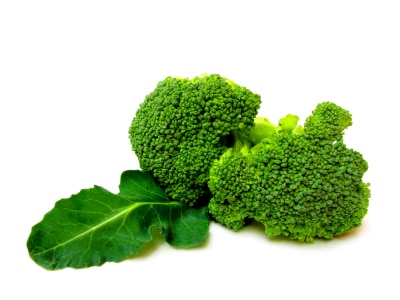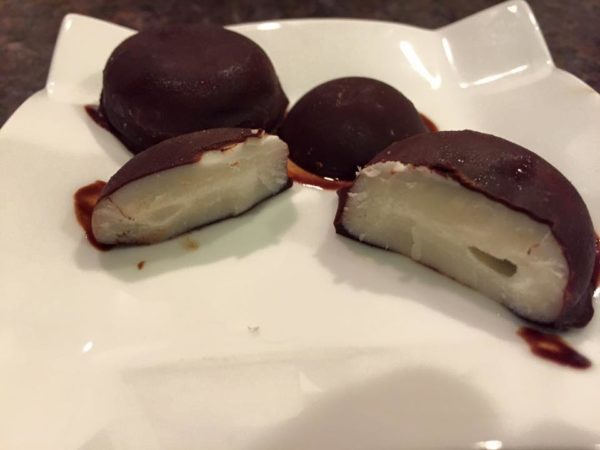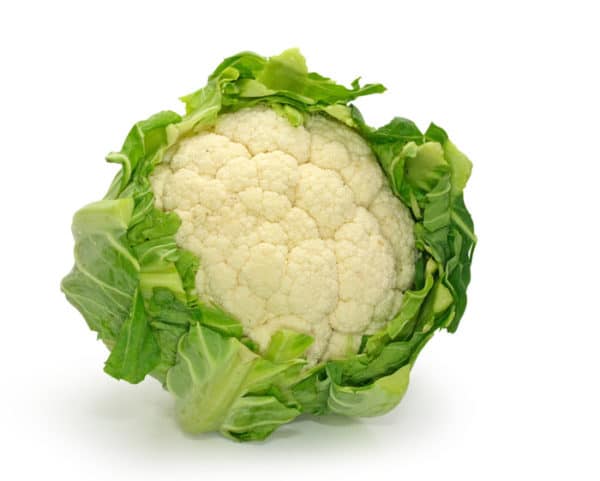

Every food has something in it that might not be good for someone, especially when eaten in excess. The same holds true for Brassica foods. But they hold many protective qualities for you, and for those reasons should have a place on your plate.
Brassicas are high in a sulfur compound called sulforaphane. Many have touted this as what makes it harmful to the thyroid, but it also has many attributes to it that deserve your consideration before you completely dismiss it. Sulforaphane is extremely beneficial to the liver, and during its detoxification, it promotes the production of glutathione. Glutathione is one of the most potent anti-oxidants in your body. It helps you to stay safe while it scavenges for free radicals and keeps them from taking over. This makes it highly protective to you from cancer cells.
Broccoli sprouts have the highest level of sulforaphanes in the broccoli family. They have been studied extensively in their role in helping to reduce the expression of cancer, especially in breast, prostate, and other hormone-related cancers. Sulforaphanes keep the reproductive hormones in a safe realm.
Certain forms of estrogen get converted into harmful metabolic by-products. The Brassicas help to decrease the harmful metabolic by-products of these estrogens. They help to go towards a more protective estrogen that helps fight against cancer.
So, you can see that there are good reasons for including Brassicas in your diet: hormone balance, extra anti-oxidants, and protection against cancer.
With all these wonderful benefits, what could the downside possibly be? There is an enzyme that causes your body to convert the sulforaphanes into isothiocyanates. Isothiocyanates inhibit the enzyme thyroid peroxidase (TPO). TPO helps make the thyroid hormone, so that you could potentially be hypo-thyroid. However, this is when you consume very large amounts of Brassica foods. There are those that eat large amounts because they are hyper-thyroid and want to reduce their TPO.
The good news is that there have been studies done with both rats and humans that show when you add extra iodine, you don’t become hypo-thyroid. The thyroid peroxidase is iodine-dependent – more iodine helps your body to use the TPO. Drinking a quart of kale juice is too much if you are hypo-thyroid. If you eat a little kale, the iodine in a little kelp will help.
You also want to make sure you get enough iron-containing foods. Excessive sulfur lowers iron and copper, resulting in anemia along with the low thyroid function. So make sure you eat enough iodine and iron foods, such as sea vegetables and micro-algae.
There are three ways you can eat your Brassicas without having their counter-productive expressions:
- Lightly steamed – this will decrease the availability of isothiocyanates, as well as the sulforaphanes, so don’t overcook them.
- Add iodine – add a sprinkle of kelp, dulse, or any other sea vegetable to get your iodine and iron.
- Fermentation – this deactivates the effects of the isothiocyanates while keeping the sulfur content high.
The best thing to remember, though, is that everybody is unique. Follow what’s been true for you. Experiment with smaller amounts of Brassicas and add iodine and iron. Your body is the real answer to what is right for you.
To help you learn more as you experiment, there are many VITAL Healing Kitchen shows and topics that review this topic and show you great recipes at the same time. There was done just this last week that even included a recipe for a Cauliflower Rice Pudding. Yum! They are all available within our VITAL Community. Come join the rest of the group and have fun!
Share this:

Are you feeling stuck?
Do you feel as if something is missing from your practice that's keeping you from delivering breakthrough outcomes for your clients?.
Recent Posts
Our Programs
Nutritional Endocrinology Practitioner Training (NEPT)
The Mastery and Certification tier is our flagship program and provides everything you need to feel confident as a practitioner who knows how to get results that lead to healthy and happy clients.
Functional Assessment Mastery
Explore the relationships between the most important hormones and their relationship with nutrition.
Functional Nutrition Mastery
Learn how to support your clients to eat and supplement in a way that reduces and eliminates chronic symptoms.
Medical Disclaimer: The information on this website is not intended to replace a one-on-one relationship with a qualified health care professional and is not intended as medical advice. It is intended as a sharing of knowledge and information from the research and experience of Dr. Ritamarie Loscalzo, drritamarie.com, and the experts who have contributed. We encourage you to make your own health care decisions based upon your research and in partnership with a qualified health care professional.
Disclosure: Sometimes (but not always), when I share resources in my programs, newsletter, and on my website, I'm using an affiliate link, which means I do make money if you buy. My credibility is extremely important to me; therefore, I only endorse the products, services, and people I believe in. DrRitamarie.com is independently owned and the opinions expressed here are my own.
Click here to see our Privacy Policy.











[…] do for six weeks to fit into a dress for a special occasion. What we really need to be doing is finding health, and eating well all the time. But how do we do […]
[…] with a thyroid or autoimmune disorder can be a bumpy, discouraging ride. It can feel like no one is listening and […]
[…] How You CAN Include Brassicas in Your Diet and Not Harm Your Thyroid […]
[…] Process the kale and salt in a food processor until […]
[…] she discusses natural health wisdom combined with cutting-edge science to help you understand your thyroid and help begin the journey towards its optimal […]